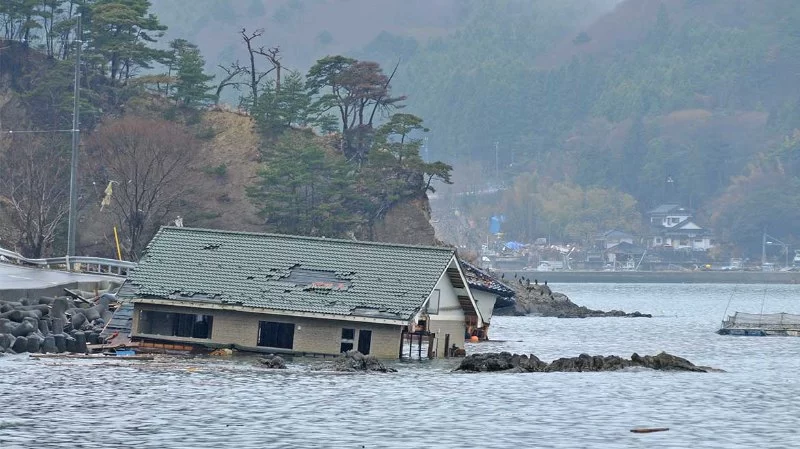Learn how to prepare for a tsunami while coastal camping. From identifying warning signs to creating evacuation plans, this guide covers safety tips, real stories, and gear advice to keep you ready and protected outdoors.

- understanding-tsunami-risks-while-coastal-camping
- monitoring-warning-systems-and-natural-signs
- choosing-a-safe-campsite-location
- emergency-preparedness-and-packing-smart
- creating-an-evacuation-plan-that-works
- real-survival-stories-from-coastal-campers
- plan-safe-camping-with-pine-cliff-resort
1. Understanding Tsunami Risks While Coastal Camping
Tsunamis are among the most underestimated natural hazards by outdoor enthusiasts. While coastal camping offers scenic beauty and tranquility, it also comes with unique risks that every camper should understand. A tsunami can be triggered by underwater earthquakes, landslides, or volcanic activity—and when it hits, there’s often very little time to react.
The 2011 Tōhoku tsunami in Japan tragically demonstrated how fast and powerful these waves can be. And while events of that magnitude are rare, coastal areas in the Pacific Northwest, Alaska, and parts of California remain at risk. Being prepared doesn’t mean living in fear—it means camping smarter.
2. Monitoring Warning Systems and Natural Signs
2.1 Relying on Technology
Before you head out for coastal camping, check for any tsunami advisories through the NOAA Tsunami Warning Center. Bring a battery-powered NOAA radio and enable emergency alerts on your smartphone. These tools can provide precious minutes of warning—enough to evacuate and reach higher ground.
2.2 Nature’s Red Flags
In some cases, natural signs can alert you before an official warning does. A sudden withdrawal of water from the shoreline, a loud roaring noise, or unusual ground shaking should be treated as immediate signs to evacuate. Campers should never ignore these indicators.
3. Choosing a Safe Campsite Location
3.1 Avoiding the Danger Zones
Set your camp at least 100 feet above sea level and a mile inland when possible. Avoid flat, low-lying beaches or bays, as these are the most vulnerable to tsunami surges. Be mindful of river mouths and estuaries, which can funnel tsunami energy inland.
3.2 Understanding Local Geography
Research maps of tsunami inundation zones before your trip. Many coastal parks have signs that indicate safe zones and evacuation routes. If you’re camping near the coastlines of Oregon, Washington, or California, these maps are often accessible online or at ranger stations.
4. Emergency Preparedness and Packing Smart
4.1 Go-Bag Essentials
A go-bag should always be ready, especially when camping near the coast. Pack items like a flashlight, extra batteries, a whistle, a first-aid kit, a printed local map, high-energy snacks, and water purification tools. Keep this bag within arm’s reach at night—you might need it at a moment’s notice.
4.2 Keeping It Light
Speed is critical during a tsunami evacuation. Your go-bag should be light enough for a quick uphill hike. Many experienced campers recommend hydration packs with internal storage as they allow both hands to be free while moving.
5. Creating an Evacuation Plan That Works
5.1 Practice Makes Prepared
Before settling into camp, identify two or three potential evacuation routes. Walk them during the day to familiarize yourself with the terrain. Teach children how to recognize signs and practice where to meet if separated.
5.2 Time Your Exit
Experts suggest planning an evacuation route that you can complete in under 15 minutes. Choose trails that are not prone to landslides or blocked by heavy vegetation. And always be ready to leave your belongings behind—life comes first.
6. Real Survival Stories from Coastal Campers
In 2022, a group of kayakers camping near Crescent City, California, woke up to a faint rumble and noticed the water pulling far from the shore. Without hesitation, they followed their pre-planned route uphill. Though the tsunami was minor, their preparation was praised by local authorities.
Another camper in Washington's Olympic Peninsula credited his portable NOAA radio for waking him during a 3 a.m. advisory. “I didn’t think I’d need it,” he said, “but it gave me enough warning to reach safety with my dog before the wave came in.”
7. Plan Safe Camping with Pine Cliff Resort
At Pine Cliff Resort, we’re passionate about outdoor adventures—but even more so about safe ones. Our coastal gear section includes essentials like waterproof radios, topographic maps, emergency go-bags, and compact survival kits tailored to coastal conditions.
Whether you're heading out for a serene beachside weekend or exploring rugged coastal cliffs, stop by Pine Cliff Resort for expert-approved gear and guidance. Preparedness doesn’t take away from the experience—it deepens your connection to the wild by respecting its power.
Lane Bay Chickee
Florida, USA
Visit Location PageTerrora Campground
Jane Hurt Yarn Rd, Tallulah Falls, GA 30573, USA
Visit Location Page